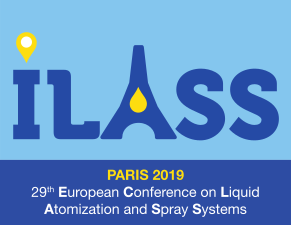In this work, atomization of the liquid sheet formed by two like-on-like impinging liquid jets is studied experimentally. The primary focus of the study is on sheet breakup due to formation and growth of perforations on the liquid sheet formed by impinging two liquid jets of 20 mPas viscosity. This perforation based atomization was not discussed adequately in the literature. In this mode of atomization, perforations or holes are originated at an area where the liquid sheet is thin due to stretching. As the time elapses, these perforations will grow in size and move either towards the bottom or towards the rim of the sheet, where they are converted into ligaments and these ligaments further break up into a chain of drops. To study the behaviour of perforation, the phenomena is captured using high-speed backlight imaging and processed using in-house developed image processing algorithms based on Matlab. For this purpose, from a series of images captured by the camera, perforations detected in a frame are tracked in subsequent frames until they get converted to ligaments. The kinematic and geometrical characteristics of perforations are obtained by tracking their centroid and area. It is observed that the perforations direction of movement depends on the position of its origin. Three modes of perforation based atomization are observed in this study. The growth rate of perforation and centroidal distance moved is observed to increase with jet Reynolds number.
|
|
|
|
Dynamics of liquid sheet breakup due to perforations in impingement atomization
1 : Indian Institute of Technology Tirupati
* : Corresponding author
Tirupati-517506, Andhra Pradesh, India -
India
|
| Online user: 53 | RSS Feed |

|


